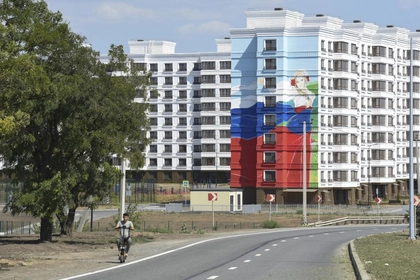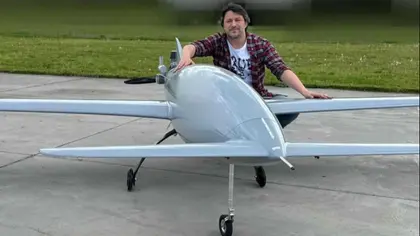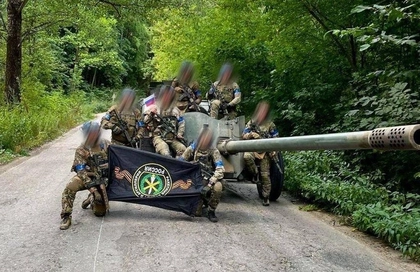Kremlin authorities are investigating the possibility that Ukrainian “beaver” drones were responsible for recent attacks on Moscow, according to Russia media reports.
Although they haven’t officially revealed this allegation, sources familiar with the matter shared this information with Russia’s Kommersant newspaper.
JOIN US ON TELEGRAM
Follow our coverage of the war on the @Kyivpost_official.
Debris matching the beaver (Bober in Ukrainian) – including a unique keel shape and dark blue coloring – was allegedly discovered near the Moscow-City financial tower complex.
- See the most recently published Ukraine news reports from today.
- See the most recently published Ukraine news reports from today.
A Newsweek report, citing open-source intelligence accounts, has also suggested that Ukrainian Bober drones could be behind recent attacks on Moscow, which the Kremlin has blamed on Kyiv.
Ukraine seldom acknowledges direct involvement in drone strikes within Russian territory. Nonetheless, Ukrainian officials sometimes hint at being involved in such incidents on social media.
In the midst of the recent attacks on Moscow, Serhiy Prytula, the founder of one of Ukraine’s main projects for military and humanitarian fundraising, posted a video of himself with Ukrainian-made “Bober” (Beaver) drones, saying: “We have no idea what can fly to Moscow!”
Ми гадки не маємо що ж може літати у Москву!
— Serhiy Prytula (@serhiyprytula) July 30, 2023
Та запевняємо, що ви, хто донатив на помсту, тут гарантовано не причетні 😉.
Далі буде, це тільки пристрілка 😉.
А підтримати Сили Оборони ви завжди можете за цим посиланням:https://t.co/NmdHTlU8b3
Працюємо, панове!
І…… pic.twitter.com/EBD7aPUZu2
What is a Beaver drone?
The Bober, or “Beaver,” is a Ukrainian kamikaze drone, which began development in 2022. Fundraising for the creation of the Beaver drones was initiated on Twitter in December upon the request of Ukraine’s Main Intelligence Directorate (HUR) under the Ministry of Defense.

Moscow Imposes Russian Car Insurance in Occupied Ukraine by 2025
The identity of the company responsible for producing these drones remains undisclosed. There is a belief that HUR might be the supplier of these drones. The cost of this UAV is estimated to be around Hr. 4 million.
The Beaver UAV bears a resemblance to an airplane, featuring canards – horizontal control surfaces forward of its main wing – on the compact front section that help give it extended flight capabilities, covering a range of approximately 1,000 kilometers.
The canards incorporated into the aerodynamic design of the Beaver UAV increase its efficiency and maneuverability while reacting to threats in air defense zones or changing targets without compromising lift. While visually resembling the Iranian Shahed drone, it’s more susceptible to electronic warfare systems that Russia may be using.
Experts suggest deploying Beaver drones in substantial numbers to enhance their ability to penetrate enemy air defenses and counter electronic warfare measures through saturation.
The preliminary technical specifications, though unverified, indicate a wingspan of about 2.5 meters, a length of approximately 2 to 2.5 meters, and an operational speed ranging from 150 to 200 km/h. Its estimated weight is around 150 kg, and the potential warhead capacity is approximately 20 kg.
The UAV airframe is designed to allow launch from both prepared runways and highways, adding to its portability, flexibility and accessibility.
The attack on August 1
Russia’s Economic Ministry tower in the Moscow-City financial precinct faced yet another repeated attack, occurring at the same hour as the previous incident two days before. This time, a drone targeted the 21st floor, housing the premises of the Russian Federation's Ministry of Economic Development.
The drone strike caused an explosion equivalent to about 2 kg of TNT, shattering the glass facade of the building over an area of 500 square meters and inflicting significant damage to approximately a quarter of the office space on that floor. No military or civilian casualties were inflicted.
You can also highlight the text and press Ctrl + Enter






